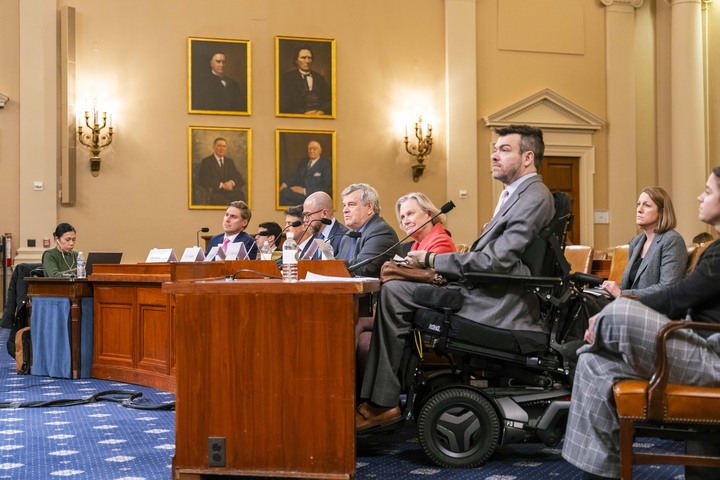WASHINGTON — Lawmakers on the House Committee for Ways and Means on Tuesday called on manufacturers to improve transparency as the U.S. experiences a nationwide drug shortage.
Active shortages are at their highest levels since 2014, according to the American Medical Association. A survey from the American Society of Health-System Pharmacists Resource Center found that over 300 drugs, especially chemotherapy treatments, were in short supply by the end of the second quarter of 2023.
“Patients are living in fear that they may be unable to get the treatments they need when they need them,” Ways and Means Chairman Jason Smith (R-Mo.) said. “I hope today’s hearing can help us zero in on bipartisan solutions that will get more, and better, medications into the hands of the patients who need them.”
Dr. Stephen Schleicher, chief medical officer of Tennessee Oncology, told the committee that many cancer patients were hit hard last year by the shortage of two chemotherapy medicines: carboplatin and cisplatin.
Schleicher testified that Tennessee Oncology went 10 days without a single shipment of either drug. At the peak of the shortage, the oncology practice was unable to treat 90% of patients who were scheduled to receive carboplatin and 50% who needed cisplatin.
“As oncologists, we were suddenly faced with the near impossible task of determining which of our patients could receive our very limited drug supply,” Schleicher said. “We were put in a situation that a decade of medical training did not prepare us for.”
One victim of rationing was a 61-year-old woman with stage 4 lung cancer who required carboplatin, Schleicher said. After having to stop treatment due to the drug shortage, her condition deteriorated rapidly, and she died soon afterward.
“Imagine being a patient with a hope for a cure or wanting to live longer with family (and) suddenly being told that you don’t have the optimal treatment anymore,” Schleicher said. “I implore Congress to act to stop these drug shortages.”
Allan Coukell, a panelist who testified to the committee, called on Congress to evaluate manufacturing quality and consider policies that encourage suppliers to maintain additional buffer inventory beyond immediate demand.
“After a dozen years, (drug shortages) must now be understood as a built in and permanent outcome of the current system,” said Coukell, the senior vice president for public policy at Civica Rx, a non-profit pharmaceutical company. “The U.S. system is designed so that purchasers of drugs are incentivized to choose the lowest price, setting pennies on already low cost products instead of purchasing in a way that makes shortages less likely. Without changes, shortages will get worse.”
However, according to a University of Utah Drug Information Service investigation, manufacturers reported that poor quality manufacturing issues were only responsible for 12%, with supply issues accounting for 14%. The cause of 60% of shortages was reported to be unknown.
Many lawmakers, including Rep. Judy Chu (D-Calif.), called for standardization of reporting, noting that manufacturers are not obligated to give detailed information on the causes of drug shortages.
“It’s shocking there is so little concrete information on why (most shortages) occur,” Chu said. “It’s clear that increasing transparency over the supply chains is necessary to address the root cause of shortages and ultimately solve this crisis.”
The United States is heavily dependent on foreign manufacturers for active ingredients and finished medications, according to Stephen Schondelmeyer, director of the PRIME Institute at the University of Minnesota’s College of Pharmacy. About 80% of all doses Americans take everyday come from foreign sources. China and India are responsible for 45% and 60% of doses respectively.
“I think we’ve got a disaster on our hands,” said Rep. Vern Buchanan (R-Fla.). “We’ve got to find a way for American companies to get back in the game.”
According to Schondelmeyer, there are over 600 active pharmaceutical ingredients that do not exist in the United States. The country could set up companies to produce those ingredients but it would take a considerable amount of time and investment, Schondelmeyer said.
Dr. Julie Gralow, the chief medical officer of American Society of Clinical Oncology, added that the U.S. should invest in advanced technology, such as continuous manufacturing for critical drugs and active pharmaceutical ingredients.
“Patients and their families deserve to know that they will get the care they need without delay,” Gralow said. “Providers should not have to make heartbreaking choices about patient care. We must act now.”


